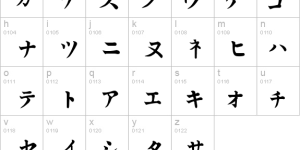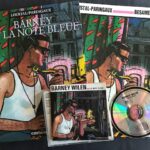My Story ~ 1. Sometimes, Flowers Bloom Even More Beautifully In A Foreign Soil
No comments yet
“I am not a professional builder, but it was like a mouse under the Buddhist scripture which became an elf by listening to holy words all the time…”
I came to this new and unknown land. During the past decades, my world has been enriched, my English has improved, my hard work turned into money in my pocket. My initial uneasiness gradually gave way to a kind of heartfelt appreciation of this place. That I quit my job in China and came here, starting from scratch was really a very difficult process, a mixture of joy and sadness, excitement and difficulties.
I was born in 1963. My hometown is Gantao, a town administered by Fuqing city, a county-level city of Fujian province. I did not live in the city. I was a rural child from a rural household. The countryside I am talking about is the place where people relied wholly on their land to support them. Some say:”those living on a mountain live off the mountain, those living near the sea live off the sea.” Unfortunately, we were not near the mountain nor the sea, so we have nothing to rely on but a few acres of poor land. Common crops in my hometown were sweet potato, rice, peanuts and vegetables that were all we could grow on our land. I have five very clever brothers. My eldest brother, second brother and third brother attended elementary school, but only my eldest brother graduated, my second and third brothers did not even finish elementary school due to my father’s death. My fourth and fifth brother did not receive any education at all. However, my brothers supported me in college, which made me the only college-educated member of our family. I passed the entrance examination in 1984 and was enrolled at the Fujian College of Business. In my hometown, only one out of a hundred applicants was admitted. I graduated from college in 1987; we were the first class from the Business College who majored in management of commercial enterprises. At our school, we were a group of ambitious youngsters who came from all over the country.
I was assigned to a government organization after graduation, the General Office of Fujian Province. My position was highly related to economy. I was a young man walking out from a rural area and was very clear about my own position. I couldn’t make any mistakes in the financial situation of my life, even if I was tempted to do so. At that time a lot of people from Fuqing went abroad. They were earning 400 Australian dollars a week – more than 2,000RMB. The exchange rate of the Australian dollar compared to the RMB was 6.5 yuan, so people in Australia could earn more than 2,000 RMB a week.
At that time my salary was only 125 yuan a month, that is, 500 yuan a year. The money they earned in one week was equal to two years’ salary. Because of this, my wife and I planned to go abroad. First, we could learn some English; second, we could enrich our experience; and third, we could make a fortune there and come back to China for a better job.
At that time, many people chose Japan over Australia, because it was easier to make more money in Japan than in Australia; however later we found that Australia was much better. You had to work very hard in Japan. Some people even had two or three part-time jobs a day. My original plan was that I would work in Japan after graduation, so I could help my mother to live a better life and to pay back my brothers for their years of support. But my decision met with strong disagreement from my family. They were worried that I might lose my job in China, which in their opinion way too high a price to pay.
Later, when I was walking past my junior high school on my way to my mother’s house I accidentally came across my former schoolmate who was a teacher at a local school. I told him about my dilemma. He was totally against my decision to go to Japan. I said;”Why?” He said that we fought for so long just to get this hard-won iron rice bowl, how could you give it away. Japan was for the rebels, the illiterate, people who are not able to finish their education, people with no future promise. Their families had no choice but to send them to Japan. We should not “dance with the wolves”, and you should not hang out with these people. I thought his words made sense, so I gave up my plan to go to Japan.
In 1989, I applied for a visa to Australia. My family was not sure about this decision. My brothers still did not agree, but my mother said that it was my life and the final decision was up to me. Even though my mother did not receive any education, she was very open-minded. She said that she believed her son had ambition; he would not make mistakes and would be successful. In the end, I promised her that I would come back in two years, three years at most. Finally, my family agreed that I should go to Australia. I came here with my wife and it cost us seventy-six thousand Hong Kong dollars.
The money was borrowed from my brothers and my mother. In my hometown, youngsters admitted to college were all outstanding and trust-worthy; also, my brothers and sisters, everyone in my family had a very good reputation in the neighborhood. We would do everything possible to pay off our debts. Our agent lent me twenty thousand Hong Kong dollars. He said my wife and I were well-educated, he trusted us. Actually, my wife had received even more education than I. She graduated from the department of oceanography at Xiamen University, one of the key universities in China. With twenty thousand Hong Kong dollars from the agent and fifty-six thousand dollars borrowed from others, altogether we borrowed seventy-six thousand Hong Kong dollars. At work, my superior gave me a green light. At that time, for cadres who went abroad, the maximum time limit for retaining one’s position without pay was one year. Due to the relatively small number of young people with college degress, my director said: “Lin, you should come back. We really need talented people like you, and I will keep your position for three years.” Actually, three years gave me more scope to do things. And the policy of temporary leave with my position held for me gave us an opportunity and also a way out. Without this, I would have never gone abroad. Besides, my wife’s English was pretty good, and my wife’s classmate was in Australia. So as long as one of us could find a job, we would not go hungry. We could support each other. The messages from overseas were all positive, nothing negative. I thought that even elementary school dropouts could earn money, why would I be afraid of going to Australia? Plus, the rush of going abroad cancelled all other possible options; the only idea in our mind was to do it. The migration agent also acted with a sense of urgency, so we thought Australia might be a very good choice. Only after we arrived in Australia did we realize the tons of difficulties we had to face.
When I arrived in Australia, I looked around; it was like a super countryside. Because we had so many worries and uncertainties on our minds, we didn’t feel in the mood to enjoy the beautiful environment and the blue sky above. We worried about our loved ones at home. The first step is always the hardest, because you have nothing. Can we be successful here? Can we find a job? Can we make money? And can we pay off the debt? We worried about our job and the road ahead so much that we really didn’t have the heart to enjoy our first impression of Sydney or Melbourne. We did not have the time to think about it. At that time, confusion was a stronger emotion than the joy of setting foot in a new land. I actually should have studied English for six months, but my wife went to class in order to maintain the visa, and I went to work. I only went to the school once, and then I dropped out. I was refunded the living expenses for one month and left. There was a Chinese person, the descendant of early immigrants, who spoke Chinese at the school. He rented a house to us. We had blankets, but there wasn’t a bed, zo we slept on the floor. The rental houses were all in very bad condition. The windows could not be shut tight; the wooden house was next to the highway with cars driving past like shooting bullets. In China, all the doors and windows are tightly closed, but here the doors could be opened just by kicking them, we were scared. Later, I rented a house including one living room and two bedrooms which we shared with another fellow-townsman.
We did not eat much, because we had only enough money for four weeks, and we did not know when we would find a job. Looking around the supermarket, all the commodities were priced in Australian dollars. Rice, soy sauce and sugar. We could not afford anything else. There was no Chinese shop at that time, let alone preserved vegetables. When we did not have dishes, we would soak the rice with sugar. The crushed dried pork and shrimp brought from China had to be saved. We drank cheap soft drinks like lemonade, one dollar for a bottle. After the bottle was empty, we boiled water, and poured it into the bottle. Carrying a backpack, we began to hunt for a job, door to door. As a newcomer to the country, the English we learned at school was definitely not enough.
The English we learned was written English, but what we needed here was spoken English. If you spoke in a formal way, they could not understand you, my accent and bad pronunciation made it worse.
The biggest difficulty was to find a job which also required experience. But we did not have any experience. We went to a BP gas station and a McDonald for a job. As one Minnan saying goes: “win through struggle”. If you don’t look, you certainly won’t find a job. While hunting for a job, many people combined together, because it was very embarrassing. Also, we didn’t want to get lost. Usually five, seven or even a dozen people were looking for the jobs together. If we could not understand the English, we would leave a name and phone number and leave and we made sure to remember the street and house number. It was very funny that we hardly had left and another group would go in. aving been bothered by job seekers, bosses would simply put up a sign saying “NO JOBS”, which was later replaced by Chinese characters.
One thing that made us confused is that Australians would not say “NO JOBS” directly, but “Oh! MAYBE” out of politeness, so we would interpret it as a chance, and wrote it down in our notebook. I remember once that I wrote eight MAYBEs in my notebook, and my wife also wrote a few MAYBEs. We looked for work separately in the morning, but after we came back at 10 o.clock, there were 15 or 16 MAYBEs written in our notebooks, but none of them turned out to be a real possibility. We were so disappointed and upset that we cried.
By now we realized that it was very hard to find a job. One day, I came back after looking for work; one of my colleagues called from China and asked how I was going. At that time, some people lied to their families that they had found a job. It was just the salary that was not very satisfactory, but they would find better job later. But this was my friend and he wanted to come here, so I told him you should not come, it was very hard to find a job, because of the small population of Australia, the limited amount of factories, the fact that too many people had flooded into Australia all at once and the fact that we had no special skills to offer an employer.
My wife worked very hard, first she found a job in a Vietnamese shop, cutting threads and ironing clothes 230 dollars for 50 hours a week. It was not much, but better than nothing.
I thought that because I could not find a job in the vicinity, I would look further afield, no matter how far away it was. I bought a train ticket, I did not dare sit down and just stood by the door, so I could see the factories from the windows. The train went a long way until there was a single railway line. I suddenly realized that the train must have taken me into the mountains and I could not go back. There was no phone at home, I was worried, I quickly got off the train and headed towards the nearby factories and asked for a job going door to door. I was walking on a slope when I fell down a large hole about 1.5 meters deep.
The boss of the factory happened to see the incident. He was very concerned and came out immediately to help me. He asked me if everything was OK. I was young, so I said that I was all right. What are you doing here, he continued. I said I was looking for a job. He was sympathetic towards me. There was a Cantonese working in his factory, he thought Chinese people worked hard and were very smart, too. He liked Chinese people very much. He took me into the office, and said to the lady at the reception: this person is looking for a job, he just had an accident over there, when can he start to work? The lady asked me: When can you start working here? I said: Anytime. She said: today is Monday. You can come Wednesday. I did not even ask about my salary, nor did I ask what my job was. I ran to the train station, I was so excited!
I loved this job, and my boss was great. The working hours were from 6:00 to 17:30, and the dinner break was half an hour. We worked 11 hours a day: 8 hours of normal working time and 3 hours of overtime. The overtime pay was AU$7.8, which was 1.5 times of each average working hour. On pay day, I was the first in line, I was given an envelope, the Australians opened the envelope the moment they got it, but I was too shy to open. I was afraid that my boss might be unhappy with that, so I quickly went to a place where nobody could see me.
I clearly remember that I had worked for two days, Wednesday and Thursday, and the salary was paid on Friday. I opened the envelope: 187.5 dollars. I was thrilled. It was more than one thousand yuan for just two days, which was equal to one-year salary back in China. I secretly told myself I would definitely make a fortune if I kept working here. That night I went home and told my wife about the salary. She was very happy too. I told her that my boss never monitored us, but I never slacked off. I would sweep the floor whenever I had spare time and then take out the trash.
Factory work began at six o’clock, and I would be there early, I always arrived before the other workers. Then I would take out of my lunch box, half for breakfast and half for lunch. I brought water, because the factory did not have water. 9:00 am was tea time. Because my English was not good, so when others were chatting and drinking coffee during the 15-minute tea break, I pretended to smoke. We did not have a common language and we had cultural differences. I was afraid to be asked questions, because my broken English made me feel inferior. I would stand behind the factory or pretend to smoke and look around the factory. When the time was up and all the workers came out, I went back inside. I would eat the other half of my food at noon without heating it in microwave oven. In fact, it was not that the others intended to harm me, but I felt depressed in such an environment.
But in order to keep this job, I worked very hard. One day, my cousin called and said that it was easier to find a job in Melbourne than in Sydney. One of my relatives worked in a marble factory in Sydney. The work in the marble factory was very tiresome and dirty, but the wages were quite high, I couldn’t find similar work in Sydney. Later, I went to Melbourne, for about two weeks looking for work. One day, I took the bus to a remote area, according to my experience, there should be opportunities here. I sat on the bus and spotted a factory over two kilometres away. I thought this place must have been the place where few people come, so I got off the bus. But there were no roads; it was farmland with wire mesh fences. Luckily, the fence was not very high, so I climbed over the barbed wire and my jeans were badly torn. When I arrived at the factory, I was so excited, because a piece of marble stood at the door. Was this the marble factory I had been looking for? I went directly in, the boss was called Allen, he came out and asked “Where do you live?” I told him. Then he said “Good! Good!” There was a Malaysian working there. He was very smart, but very lazy. The boss told me “This job is very hard can you do it?” I said: “I can, absolutely no problem”. He said if I could do the work, he would fire the Malaysian. I was so excited that I did not even ask him my salary. He asked when I could start, I said anytime. He gave me one day to prepare.
The day was May 1, 1990, a day to remember.
A few days late, I realized that I needed a bicycle. But I didn’t not want to buy a new one, so I borrowed a small one from a classmate. It was definitely quicker to ride to work, so I could set out later than usual. I was also worried about losing the bike, so I put it inside the factory. One day, I was caught by the police, because the small bike had no light and I did not wear a helmet. The policeman asked “What’s wrong with you?” I said: “I do not ride this bike to wok every day. I just borrowed it because I am late for the traini and my sister doen’t need it today”. The police officer said he would fine me if he saw me again. I was very apologetic, and said I know, I know. When I came back home and told my wife, my wife said: “I will buy you a helmet”. She went to the Sunday market, and bought an old motorcycle helmet for 5 dollars.
We did not have time to worry about looking good. The only thing that mattered at that time was to save money. Work hard, make more money and spend little. The burden on our shoulders wouldn’t be relieved until we paid off our debt. The pressure of debt will follow you all the time until you pay it back. Seventy-six thousand Hong Kong dollars plus interest, the air tickets and marriage banquet expenses in China. It took quite a long time to pay off this money. I eventually had to return the bike to my classmate, but I still had the helmet. My wife bought me a bike. It cost 60 dollars with only one front brake.
For six months I rode this worn-out bike and wore my shabby helmet. My wages were relatively high, 500 dollars per week, so I bought a new bike with both front and rear brake. The helmet was replaced by a CKK’s red hat. I told my wife that we should have taken a picture of that old helmet.
The Australians stopped working when it was time to go home, and came back the next day. But I thought differently. I would finish my work before I left, otherwise the materials would be wasted. On 20th of that month, my boss told me he was very happy. “I will give you a reward of 3000”. It was quite a lot of money at that time, and I was thrilled. On 23rd, the boss hosted a BBQ and gave me another 3,000 dollars plus my holiday pay. A couple of days later, he fired two other workers. I did all the work by myself. It was harder, but it was worthwhile.
Back then, if I did not do a good job during the day, I would call my boss and tell him when I got home. The granite would crack in direct sunshine, so I told him that granite should be covered with cloth to avoid over-exposure to the sun. After that, he treated me as one with him. He told me everything.
Later, he asked me to repair the factory. I talked with workers working there. I found that the business was really good, so I started my own business in 1995.
In 1992, I bought a house in Fuzhou, which cost me thirty-eight thousand dollars, that is, approximately 300,000 yuan. I really wanted to go back to China in 1992, because my visa would soon expire. I bought a house and I still had the apartment back in China. So I did have some properties. Later, one of my teachers said that it was like a city: people out of the city want to enter, and people inside the city want to leave.
My family and I talked about it many times. Finally, I told my wife that we should prepare for the worst. We already had one house, a shelter protecting us from rain and storm. In case, things did not work out here, I could sell vegetables or be a tricyclist for a living at Fuzhou.
So, in 1995, I bought a piece of land near the city center, 146 square meters. I know nothing about building a house. I knew what were windows and doors, but I had absolutely no idea of what is skirting, baseboard and things like that, in early 1980s, there were no such things in China.
I hired a builder to build the house. But while looking for the builder, I thought about the price: the cheaper price, the better, but they were all far away. I took the bus to see the display houses in the rural area. The prices were really good, about three thousand or four thousand. I went to see the houses door to door.
I am not a professional builder, but it was like a rat under the Buddhist scripture, it became an elf by listening to holy words all the time. Soon, I got to know what is skirting and the baseboard. At that time, I felt I absorbed ideas very quickly. I took the brochure of one house, and the next day I went to another house and made a comparison. So after three months, I really knew something about building houses. I was very confident as if I were an expert. In 1995, I hired a builder to build a house for me. It was a three-storey house, 270 square meters. I drew the blueprints myself. It worked pretty well but it didn’t look so good on the outside.
Chinese people like red bricks. Later, a Vietnamese neighbor heard that I had bought the land, and then he bought the second block. He learned building techniques from me. He said that he would do whatever I did. My friend also bought a block of land and told me he wanted to build in the same way. As a result, there were three red brick buildings in the street.
We felt good. The Vietnamese on another street said that I could change the external appearance for 3000-4000 dollars. But I wondered why I should replace it. As a matter of fact, it didn’t match up with the rest of the houses in this street. An old Singaporean immigrant told me, “Jack, don’t worry, this will not be your last house, and you will build a lot of houses”.
In 1997, I asked the agent to evaluate the price of my house. The evaluated price was 350,000 dollars. 110,000 dollars was spent on building the house, 90,000 dollars on buying the land. Altogether it cost me two hundred thousand dollars. I could make a lot of money by selling the house, so sold the house in which my family and I had been living for a year. This house was sold by auction for 365 thousand dollars; I made more than 140 thousand dollars out of it.
Later one of my friends said that Bodwen district was pretty good, so I bought a block of land of 1,000 square meters in early 1998. I could build three houses on the block so I employed an architect to design three houses for me. Since I did not have experience, there were lots of things to be done before approval. As this went on, land prices in the area increased, and finally I decided to build two houses.
As for the 1050-square-meter land on the corner, I left 615 square meters in front and 435 square meters behind the house, and applied for a large townhouse. After the construction was done, I sold them by auction for 830,000 dollars. I made a fortune by selling the land and the previous house.
At this time, I was still working at the factory. I went to a construction site to make sure that everyone arrived in the morning, and then drove to work. One day I told my boss I can tell what the workers were doing by the way they handled the tools. Good or not good? The boss told me: from now on, you are responsible for these workers. He announced to everybody, “Please listen to Jack”. After that, everyone called me boss.
Then I spent 500 thousand dollars to build another house. I drew a draft plan and then gave it to the architect. Since I did not have a license, I hired an owner-builder. My knowledge was insufficient to build a house at first, but I could learn. I asked them why this and why that, and they would explain it to me. I had an open mind and everything was absorbed. The house was built after a year. Before completion, a man from Shenyang wanted to buy it. I sold him the house to him for 1.54 million dollars even before it was finished. I made 1 million dollars. That was in 2002.
Since then, I have built a lot of houses, for myself and for others. I did not have a license, so I hired others to be the owner-builder, and I was responsible for management. I paid 40 to 50 thousand dollars for each house. In 2007, I took the builders test. Now, among builders in the Chinese community, I was one of the top 3, many people in the building business know about me. Now, it is a sense of achievement that supports me to keep doing what I do. Why do customers choose me over others in this business? It is an acknowledgement of my personality. We should be honest and never take advantage of others’ trust and use it to make a profit.
Time flies. 20 years has past. I was a student studying business, but now I am in engineering. You might think that I would have become an official in China, you would never think I would build houses in the southern hemisphere. From a green horn to a senior builder, I must say it is Australia’s social culture and traditional Chinese wisdom which gave me with wisdom and drive for the better life that I have achieved.
Along the way, I felt more satisfaction than regret. Unfortunately, I am far from my family, my mother is over 90 years old, and I stay at her side. If one day my mother is gone, I will be very sad. To compensate for my absence I make an international call to her every day, this contact makes her very happy.
From: Fan Hong & Liang Fen (Eds.) – My Story ~ A Study On Chinese Cultural Identity In Australia
Order the book: http://www.amazon.de/My-Story-cultural-Identity-Australia
You May Also Like
Comments
Leave a Reply









